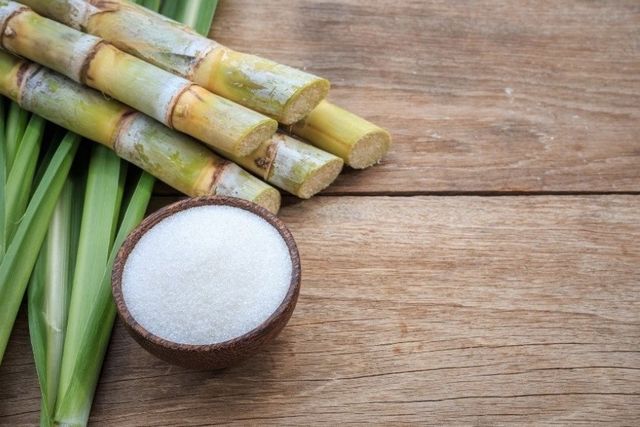Cane Sugar Processing Explained: What Takes Place Inside a Sugar Mill
Cane Sugar Processing Explained: What Takes Place Inside a Sugar Mill
Blog Article
An In-depth Overview of the Health And Wellness and Economic Implications of Cane Sugar Handling on Local Neighborhoods
Cane sugar handling plays an essential duty in forming the financial landscape of regional neighborhoods, providing employment opportunities and boosting supplementary industries. The health implications connected with high sugar usage can not be ignored, as they contribute to climbing rates of obesity and diabetes.
Financial Benefits of Walking Cane Sugar Processing
Cane sugar handling provides significant economic benefits that expand beyond the immediate farming market. The cultivation and handling of sugarcane produce many job chances, from farming to manufacturing and distribution. This employment generation not only sustains neighborhood economic situations however also promotes neighborhood growth by providing steady revenue sources for households.
In addition, the sugar market boosts ancillary businesses, including transport, devices supply, and packaging services (Cane Sugar Processing). As these industries expand, they add to an extra robust economic framework, improving overall neighborhood strength. The export possibility of processed walking cane sugar even more magnifies financial advantages, placing areas as competitive players in global markets
Investment in contemporary processing centers can result in raised productivity and effectiveness, therefore decreasing waste and enhancing source use. This shift not only profits the regional economic situation however also supports sustainability efforts by decreasing ecological impacts.
Additionally, the earnings generated from cane sugar processing can be reinvested in regional framework, education and learning, and healthcare, promoting holistic community growth. Generally, the financial advantages of walking cane sugar processing are multifaceted, providing a foundation for enduring prosperity in agricultural regions.
Health Dangers Connected With Sugar Consumption
Excessive sugar usage positions significant health dangers that warrant serious focus. High intake of included sugars, especially from refined drinks and foods, has been connected to various wellness difficulties.
Additionally, high sugar consumption is related to heart disease. Raised blood glucose levels can bring about insulin resistance, a precursor to numerous heart-related issues. Additionally, sugar can have detrimental impacts on oral health and wellness, leading to cavities and periodontal disease, as germs in the mouth grow on sugar, creating acids that deteriorate tooth enamel.
Moreover, arising study suggests a prospective web link in between high sugar consumption and mental wellness disorders, such as anxiety and stress and anxiety. As communities grapple with these health and wellness threats, it ends up being necessary to promote understanding and urge much healthier dietary choices. Resolving sugar intake is crucial not just for specific health but additionally for the overall wellness of regional neighborhoods, highlighting the need for comprehensive public health approaches.
Ecological Impacts of Sugar Production
Frequently ignored in conversations regarding sugar's effects is the substantial environmental impact of sugar production. The farming of sugarcane typically demands considerable land usage, leading to deforestation, loss of biodiversity, and disruption of local communities. The conversion of forests and wetlands into sugar ranches can lead to habitat destruction, threatening numerous varieties and modifying ecological balance.
Furthermore, sugar production is resource-intensive, consuming considerable amounts of water for irrigation. This can result in depletion of neighborhood water sources, detrimentally impacting both agricultural practices and area accessibility to tidy water. In addition, using chemical plant foods and pesticides in sugarcane farming can add to dirt degradation and water air pollution, as drainage from these chemicals enters nearby rivers and lakes, impacting marine life and human health.
The ecological footprint reaches the processing phase, where power consumption and waste generation more aggravate eco-friendly issues. Air pollution from shedding sugarcane areas, in addition to greenhouse gas discharges, add to climate modification. Because of this, the ecological implications of sugar manufacturing warrant significant factor to consider, prompting stakeholders to embrace even more sustainable techniques to mitigate these negative effects on regional ecological communities and communities.
Task Production and Neighborhood Development
The environmental obstacles posed by sugar production are frequently counteracted by its potential for economic advantages, especially in work creation and neighborhood development. The walking cane sugar industry acts as a substantial source of employment in numerous country locations, giving work throughout various skill degrees, from farming labor to processing and distribution duties. This employment not just sustains individual family members however likewise adds to the total financial vitality of regional communities.
Additionally, the facility of sugar processing centers promotes secondary companies, such as transport services, devices supply, and upkeep companies. As these businesses prosper, they create added jobs and bolster local economic climates. The earnings created from the sugar sector additionally leads to increased tax incomes, which can be reinvested into neighborhood services such as education, infrastructure, and healthcare development.
Additionally, the sugar industry usually participates in neighborhood growth efforts, such as supporting regional colleges and health and wellness programs, thereby improving the lifestyle for locals. By fostering solid community ties and advertising financial growth, the walking cane sugar processing field plays a vital duty in uplifting content local populations, making it an important element of lasting development approaches in sugar-producing regions.
Balancing Wellness and Economic Growth
In navigating the intricacies of walking cane sugar handling, an essential obstacle exists in balancing health considerations with financial growth. The sugar sector considerably adds to local economies by generating jobs, boosting relevant sectors, and boosting tax obligation revenues. However, the health and wellness implications connected with too Website much sugar consumption can result in chronic illness such as excessive weight, diabetes, and cardiovascular problems, which can concern public health and wellness systems and lessen labor force performance.

In addition, regulatory frameworks can play a pivotal function in assisting industry methods in the direction of even more health-conscious and sustainable techniques. By fostering collaboration between government bodies, health and wellness companies, and the sugar industry, communities can navigate the dichotomy of health and wellness and financial development, ensuring that the benefits of cane sugar processing are equitably shared while prioritizing public health and wellness.
Final Thought
Finally, the handling of walking cane sugar presents both significant economic benefits and notable health and wellness dangers for regional communities. While it fosters work creation and boosts local growth, the affiliated health and wellness concerns, especially regarding obesity and diabetic issues, require a careful harmonizing act. By advertising liable usage and investing in neighborhood education and lasting methods, it is possible to make best index use of financial benefits while decreasing damaging health and wellness impacts, thus guaranteeing a healthier future for regional populations.
Additionally, sugar can have damaging results on oral health, resulting in cavities and gum tissue condition, as germs in the mouth thrive on sugar, generating acids that wear down tooth enamel.
Addressing sugar usage is crucial not just for individual health and wellness yet also for the general health of regional communities, highlighting the need for thorough public wellness techniques.
Regularly neglected in discussions regarding sugar's implications is the considerable ecological effect of sugar production. The health effects associated with excessive sugar intake can lead to chronic illness such as obesity, diabetes mellitus, and cardio concerns, which can concern public wellness systems and diminish workforce efficiency.

Report this page